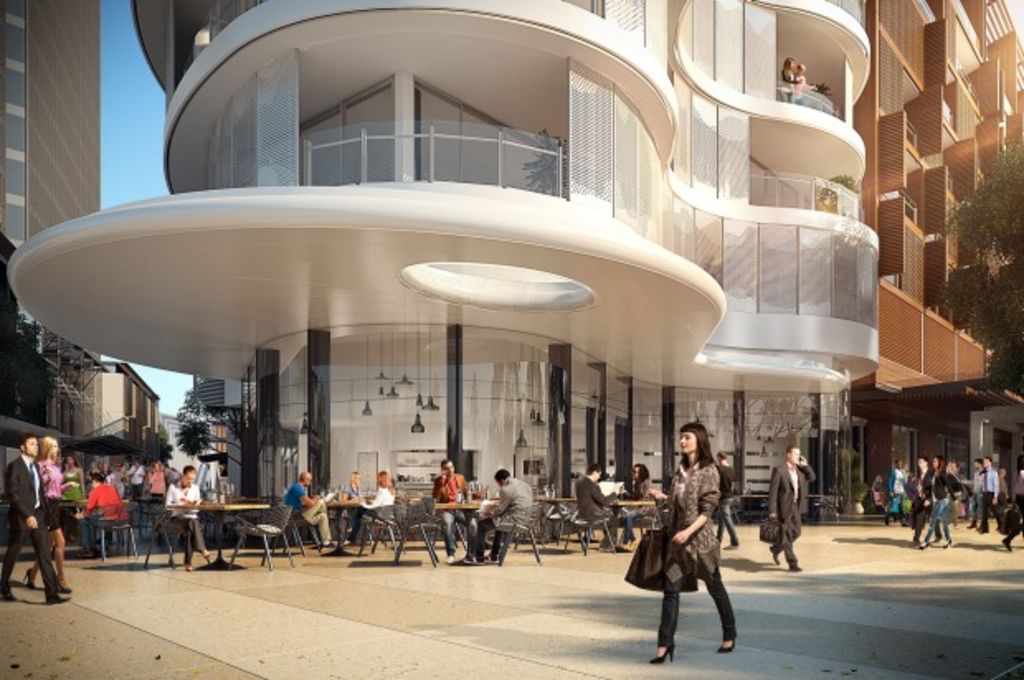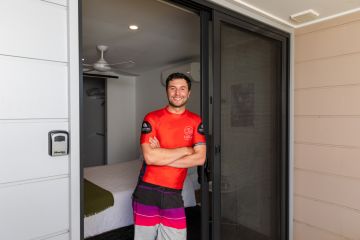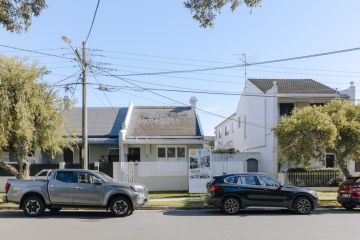Barangaroo raises prospect of user-pays strata fees

They’re among the biggest gripes of apartment living: “I never use the pool, so why should I have to help pay for it?” And: “I live on the ground floor, I shouldn’t have to pay for the lift.”
But after a landmark revelation about the future running of the Barangaroo development, a system of user-pays strata fees may well be on the horizon.
James Peterson, senior development operations manager of Barangaroo developers Lend Lease, has told a national strata conference on the Gold Coast that a revolutionary new system has been drawn up to charge buildings in the complex differently according to their use of shared facilities.
While different buildings in large complexes usually have different strata levies based on facilities and the number of residents, the cost of shared amenities has never before been calculated on the level of use.
These will be for factors like the number of cars they may have that use the roller doors on the car park or the driveway, and the volume of waste they produce that has to be disposed of.
“We’ve developed a methodology for shared facilities of ‘no disadvantage’,” he said. “This system could continue to metered grease trap use, pest control, everything.
“It gives people the real feel that you pay for what you get. If one building uses 28 per cent of the use of a shared facility, then it’s only right they pay 28 per cent of the cost.”
This could pave the way for individual owners of apartments in buildings to introduce systems of differential strata levies, with their quarterly payments calculated on what they use of shared facilities, rather than as a percentage of the total running costs.
Strata lawyer Gary Bugden, who’s consulted on the setting up of strata laws in Australia, New Zealand, the UK and throughout the Middle East, says it is now a distinct possibility.
“It will take a fair amount of work to set up the system for doing this, but it is quite possible to do,” he says. “There’ve been discussions on this in the past, but it’s coming up again now. I think it has a certain appeal for people.”
It could involve owners having pass keys that don’t allow them access to the pool,gym, meeting rooms or vegetable garden. It could also extend to metering the use of rubbish produced, as against recycling volumes. Car owners might be charged for the running costs of the car park, while bike owners might only pay for the use of the bike room.
Havencab facilities management company director Frank Boross said he finds the new Barangaroo model “exceptional” and believes it offers exciting potential for apartment owners.
Speaking at the Strata and Community Title in Australia for the 21st Century conference at Griffith University, he said: “The idea of a user-pays system is brilliant. That could work with anything that can be broken up into line items. The difficulty comes in, however, with expensive items like the upkeep of a pool. It may cost $100,000 a year to maintain and if a lot of people opt out, it could be difficult to keep it going. But I think it’s a brilliant idea and we could well see it more in the future.”
Strata managers are divided about the prospect of overhauling the whole system. Margaret O’Connor of O’Connors Strata said that for many years owners living on the ground floor of a building have been arguing they shouldn’t pay for the lift.
“But at the moment, you buy into a facility as a whole, whether you use it or not,” she says. “But in theory differential strata fees would probably work but the financial and administrative cost could be quite an impost on the building as a whole.”
There would also need to be adjustments to strata law to make a new system run smoothly without the need for a whole load of bylaws and exclusive use rules.
Wally Patterson of strata company Dynamic Property says a few Sydney buildings already levy owners slightly differently. The Rex building in Kings Cross, for instance, charges its commercial owners only for the lifts that go from the basement to the ground floor, but not to the higher levels. Residential owners pay for the lifts going to the higher floors as they’re the only ones who use them.
“But generally, to charge individual unit owners differently, you’d at first need a law change in NSW,” he says. “At the moment, it’s not possible to determine individual strata fees on anything other than unit entitlements.”
We thought you might like
States
Capital Cities
Capital Cities - Rentals
Popular Areas
Allhomes
More







